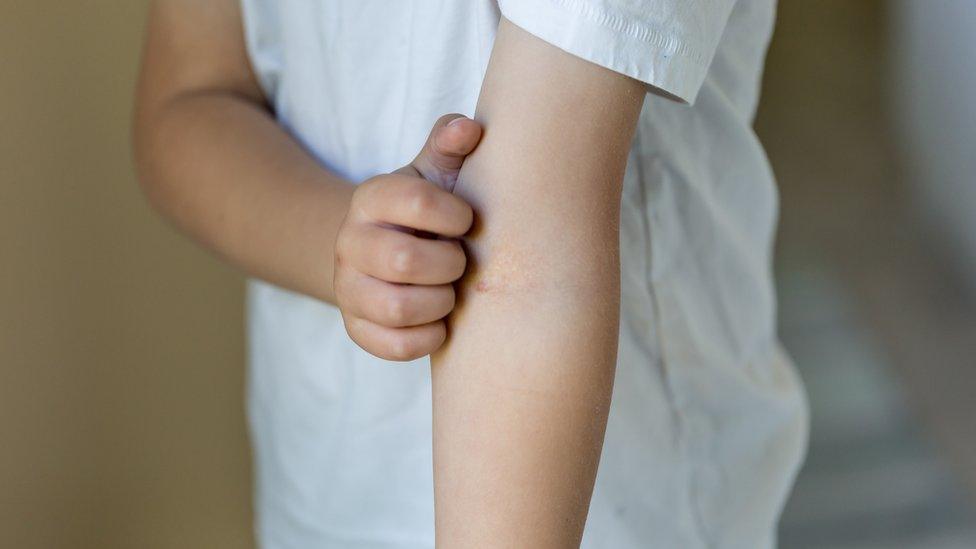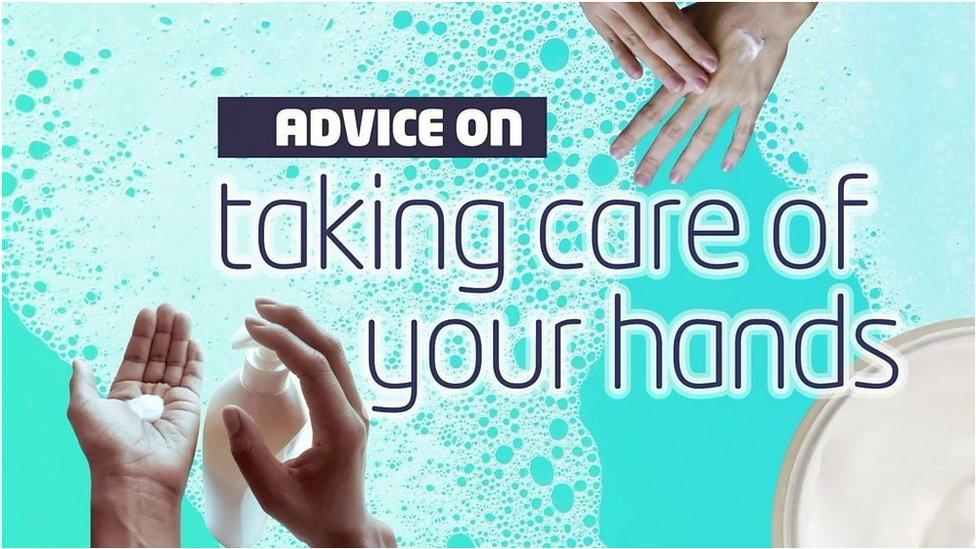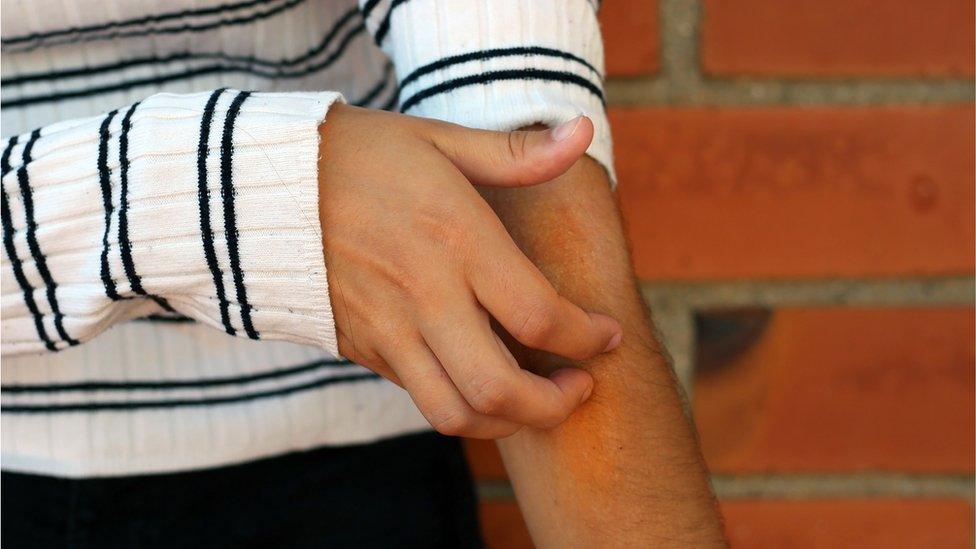Itching: Scientists discover what makes our skin itch
- Published
- comments

Feeling itchy can be more than a little bit annoying. It can leave us scratching for hours, keep us awake at night, and generally drive us up the wall.
But have you ever wondered why we itch? Often even without an obvious reason?
Well, this is something one group of scientists have been looking into, and they think they now have the answer!
Experts at Harvard Medical School have found that feeling itchy is caused by a particular kind of cell found in bacteria.
The bacteria - called staphylococcus aureus - makes us feel itchy by acting directly on our nerve cells.
The researchers carried out an experiment by exposing the skin of mice to the bacteria, and found they developed an itch over several days.
Not only did the bacteria itself make the animals feel itchy but it also made them hypersensitive.
This meant they had more of a reaction when their skin came into contact with other things that wouldn't normally cause an itch.
This kind of trend is common in patients with conditions like eczema, but it can also happen in people without any underlying conditions.
How can the scientists be sure this is what makes us feel itchy?

As part of the experiment, versions of the bacteria were changed slightly so some lacked specific pieces of its usual molecular makeup.
This helped the experts to identify which single bacterial enzyme was responsible for starting an itch.
This enzyme - known as V8 - triggers an itch by activating a protein called PAR1. It's found on skin cells that carry signals - like pain, heat, and itch - to the brain.
When researchers repeated the experiments in lab dishes containing human neurons, they also responded to V8 whether or not the skin was reacting to an allergy or not.
You don't necessarily have to have inflammation for the microbe to cause itch, but that the itch exacerbates inflammation on the skin.
Can the discovery help experts find a way to stop an itch?

After finding out the main cause of our itches, scientists set about trying to block it.
The PAR1 protein is one that our bodies also use when it comes to blood-clotting, so the team tried an already approved anti-clotting drug on the mice - and it worked.
The mice saw an improvement to both their itching and any skin damage they had.
One of the authors of the study, Dr Liwen Deng, said: "Itch can be quite debilitating in patients who suffer from chronic skin conditions.
"Many of these patients carry on their skin the very microbe we've now shown for the first time can induce itch."
The scientists now hope the drug could be used as an anti-itch medication for humans, and could be used in new creams in the future.
- Published13 August 2020

- Published15 September 2021

- Published3 August 2020

